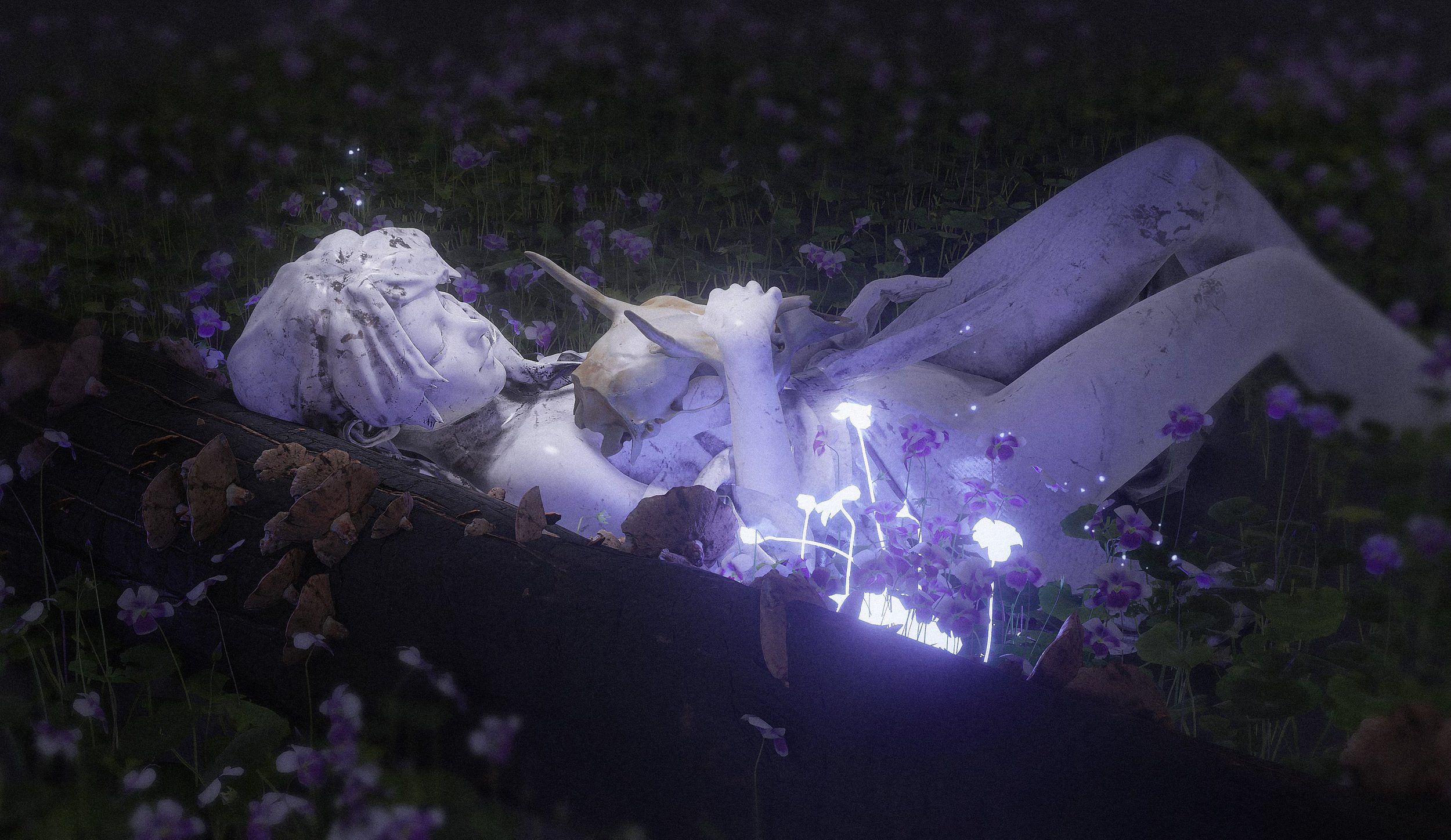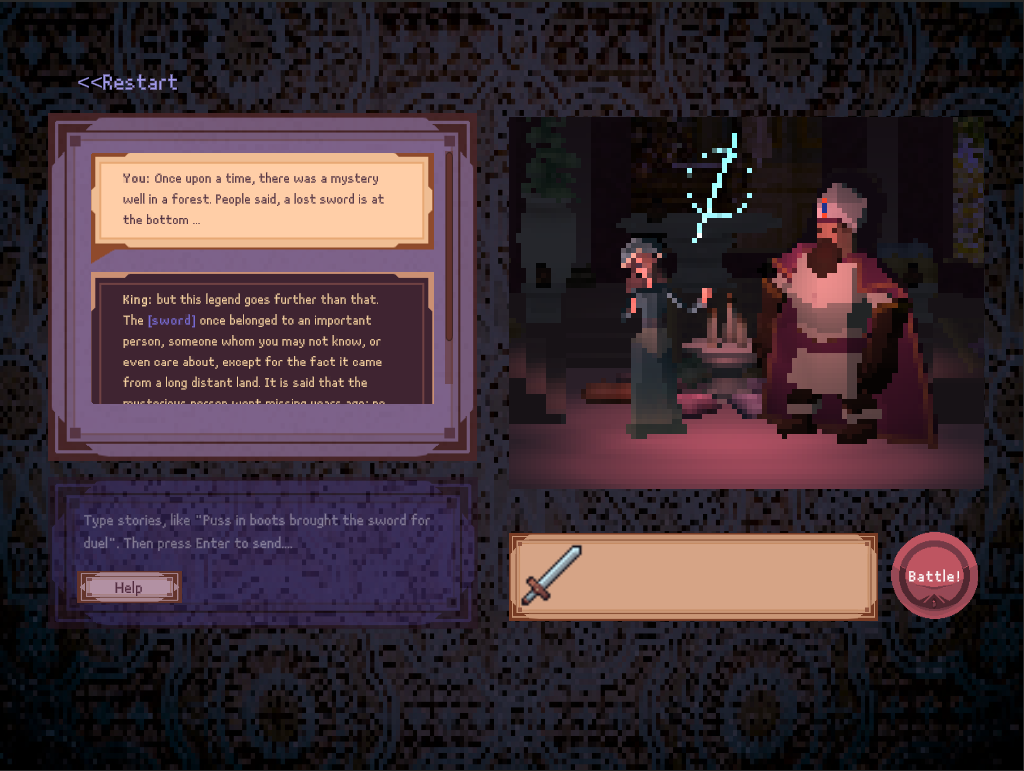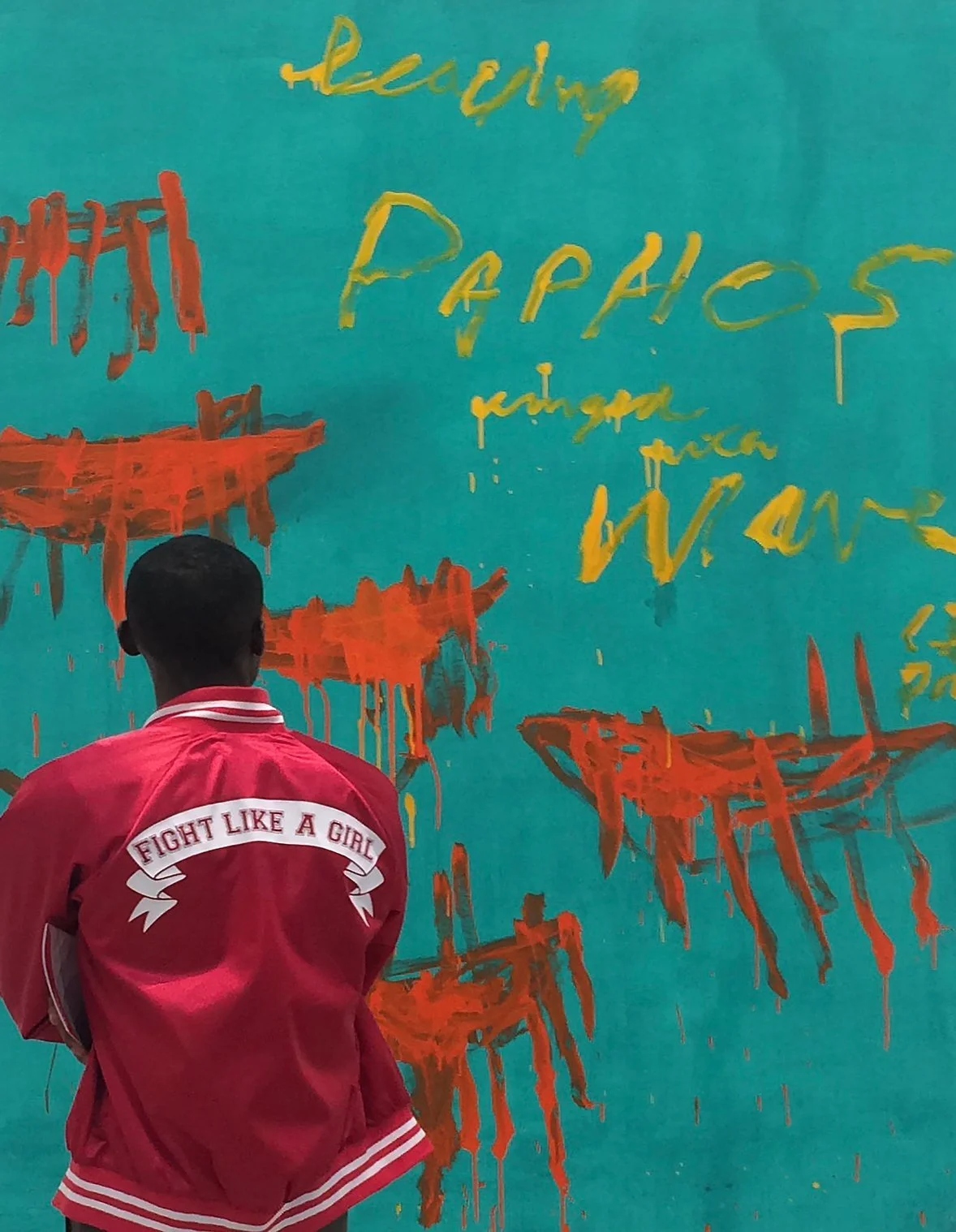INTERVIEW | Yuqian Sun
10 Questions with Yuqian Sun
Yuqian Sun is a Chinese AI artist and researcher who graduated from the Academy of Arts&Design, Tsinghua University, and the Goldsmiths University of London. She's currently a Ph.D. student in Computer Science Research at the Center of Royal College of Art. She's also one of Baidu PaddlePaddle AI developers experts.
Yuqian Sun Portrait
Inspired by conversations between virtual characters in video games, she produces works that steer with curiosity. She creates art projects based on AI chatbots, focusing on narrative and intimacy in human-AI interaction. Her work varied from 3D renderings and games to generative arts.
Her works and research have been presented at galleries and conferences, including the Artificial Life 2020 conference gallery, 2021 Crypto Art Week Asia, The media facade of Yeltsin Center in Russia, 7th ACM Celebration of Women in Computing, 2021 Asia Digital Art Exhibition, and Shanghai Aiiiii Art Center.
INTERVIEW
First of all, introduce yourself to our readers. What is your history and your artistic background?
I'm Yuqian Sun, an AI artist and researcher. I graduated with MFA in computational arts from Goldsmith, and I am currently in my first year as a Ph.D. student at the Computer Science Research Center, Royal College of Art. I hold a bachelor's degree in interaction design from Tsinghua University, and I gradually changed my direction to AI art. I am working on AI-generated content, mainly focusing on the AI chatbot: agents who can actually communicate with humans. I also create visual works around the chatbots I made.
How did you start getting involved with art, and more specifically with digital art?
I started using the tablet to draw digital illustrations from primary school, so I've been kind of familiar with computers since childhood. I always regard them as a tool or playground for me, leading to better expression. Then I learned about 3D renderings, coding, and interactive media in my undergraduate school, so I spontaneously improved my skills to create more digital art or works requiring coding skills. I haven't thought about how I started. Everything grows naturally.
Girl and City, 3D art, 2021 © Yuqian Sun
Way to the wood, 3D art, 2021 © Yuqian Sun
And how would you define yourself as an artist today?
It's hard to define and label myself. I am an artist and designer, as well as a developer or researcher. It depends on what I'm working on. But whoever I am, my direction is the same: finding the gap between our imagination and actual AI technology, then creating works from a speculative perspective.
In your work you use technology and AI, and you create video games inspired characters and scenarios. How did you come up with this idea? And what messages are you trying to convey?
I started making AI and gaming stuff because I have always played many visual novels. In middle school, I was always touched by stories inside the games conveyed mainly through the text. And I started to think, what if we can actually talk and communicate with the virtual characters, rather than following the choices set by the developers?
When I got into college, I found I could maybe contribute something to that motive - not to improve the algorithm for understanding language, but to design mechanics or context to let humans feel more familiar with virtual beings.
I centre on two main concepts through my works. One is emergent narrative: storylines that are not written by developers but emerge from the viewer's interactions. Another is defamiliarisation, proposed by Viktor Shklovsky, the technique of presenting to audiences common things in an unfamiliar or strange way. AI generates infinite possibilities, and as a developer, I only need to provide context, then everything will emerge through AI's interpretation of human knowledge and the audience's personal understanding. I will never predict what a viewer will meet and how they will feel and resonate with their own experiences.
My recent work Wander[001], a sci-fi chatbot that can travel to the future Earth, is developed through these concepts. Send her a message with a real location on Earth, and she will start an interactive journey based on the location's information. There are no fixed choices in the experience. I saw people visit their hometowns or search for their acquaintances, and they told me they felt surprised to see how the place changed or how their friends showed up in the stories. I'm glad to read the stories: they're symbiosis work created by me, my AI bot, and the audiences.
One of the themes you reflect upon in your work is "the narrative and intimacy in human-AI interaction". What do you think of this growing presence in our lives? And in your opinion what is the impact that these technologies have on art?
The most important thing here is that individuals who hold our social relationships or admiration don't have to be human anymore. Spambots talk to people on social media like Reddit, and nobody notices that. AI-generated paintings are sold highly in auction houses. It forces us to rethink our autonomy and creativity. If you want to draw a photo in Van Gogh styles, this bunch of algorithms and tools can do much better than us. Even if you want to convey Wittgenstein's concept in Van Gogh's style, which sounds fascinating, some AI models like Clip+VQGan can directly generate sketches through the text of this idea. So at least for me, I think it's time to consider digital artists as collaborators with technology.
How important are new technologies for your work? And how do you keep up to date with the latest trends and innovations?
The inquiry on the gap between imagination and current technology is the main part of my work. I believe artists can provide speculative and metaphoric plans for the emerging questions. For instance, when I learn natural language processing, I learn that boundary issues for open-end conversations are a common problem. Due to the algorithm's limitations, AI's words may be out of topic. In my game project, 1001 Nights, I designed mechanics and adopted folklore context to alleviate that.
In 1001 Nights, players will impersonate Shahrazad, who is the storyteller and narrator. The character has to tell stories to entertain the fictional Sassanid King to avoid her execution. The King, powered by AI, contributes to the storytelling in each scene to interact with the player. Shahrazad has a special ability to turn words into weapons or armors, to fight the King. This mechanic corresponds to the "invading language" concept, just like Wittgenstein's statement: "The limits of my language mean the limits of my world".
I cannot come up with these ideas without the awareness of upcoming innovations, so keeping up to date with emerging technologies is now one of my natural intentions. The relevant discussion may not happen in art fields, but it's still inspiring for me to learn more about it.
1001 Nights © Yuqian Sun
Is there something else you would like to experiment with? As a researcher yourself, is there any other field you would like to investigate?
It's hard to say that I want to investigate something else because there are already a bunch of fields related to my research. Storytelling, linguistics, natural language processing, gaming, visual arts, all of them are challenging for me. It's still a long way to go to find my balanced position as an artist and researcher.
Currently, as a side experiment to the chatbot project Wander[001], I'm trying to generate an interactive virtual environment from the travel note written by the AI agent. This workflow will include complicated steps related to computer vision, like text-to-image generation, depth detection, photosynthesis, etc. It's challenging, but I'm always open to possibilities. Maybe someday I can procedurally generate a game through a story written by AI!
Over the past year, we have witnessed a lot of changes, in the art world as well as in our lives in general. What is one thing that you miss about your life pre-Covid, career and art-wise?
I miss the days when we could travel without limitations. Before COVID broke out in London, I was accepted to a computing symposium in Scotland. It was supposed to be my first trip sponsored by academic institutions, but they canceled the off-line event due to COVID. I missed those face-to-face events and exhibitions without masks and anxiety.
And what is one new thing that over the past year you have discovered? Did you participate in any online exhibition or event?
Yes. My second-year experience at Goldsmiths' master program is all held online. While getting used to Zoom meetings, I'm now starting to ask if people like to join discussions on other platforms like VRchat or Gathertown. Those virtual spaces provide game-like experiences online, so they feel much better than Zoom calls. Sometimes, I find I can still feel the familiarity of face-to-face contact in virtual worlds, and I hope more people can get used to that.
Finally, what are you working on now, and what are your plans for the future? Anything exciting you can tell us about?
Now I mainly focus on my Ph.D. research on the AI agents about emotional connections and storytelling. Meanwhile, I'll do further research on gaming and explore how the human-AI interaction will grow under a narrative context. Soon, my work will be shown in the exhibition Beyond Nature at Wendle Court in London. I'm looking forward to more opportunities.





















